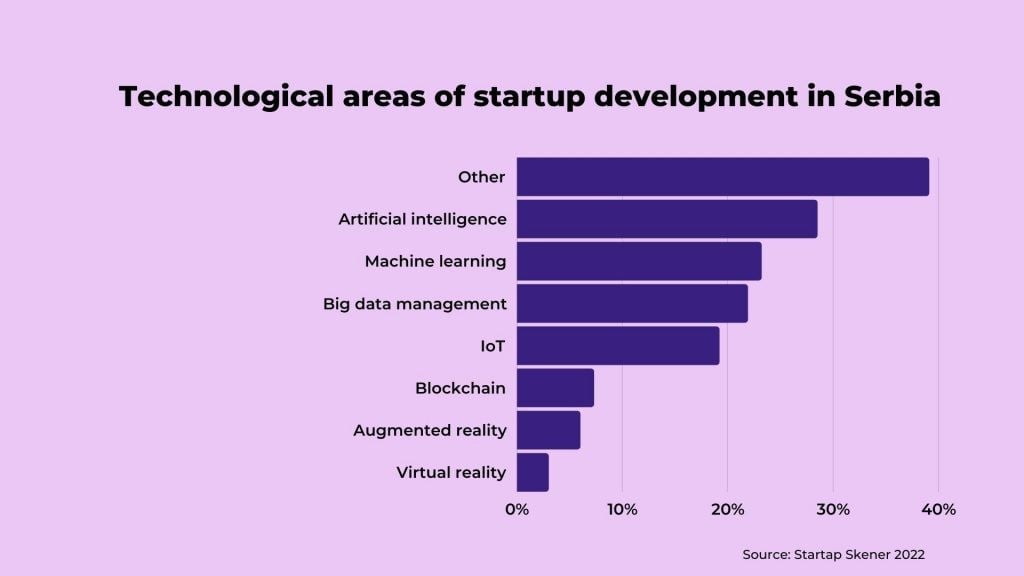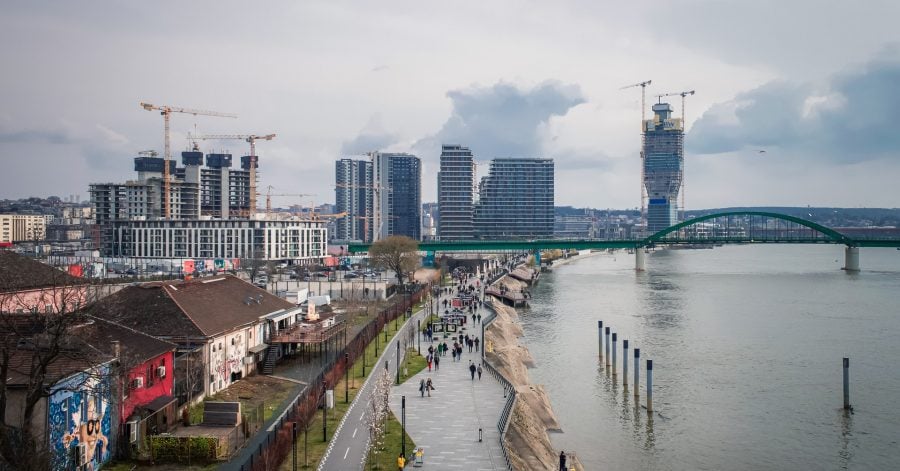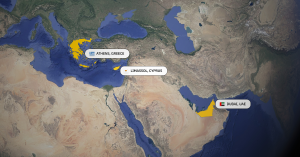Last year was one of the most successful ones for the Serbian startup ecosystem as it managed to attract over €123M in investments – an increase of 600% year over year. This year, the country looks set to build up on the momentum and enable Serbian startups to raise even more capital, a recent ecosystem report shows.
Last year, the most notable investments in the ecosystem were made in blockchain development platform Tenderly ($58.6M), people analytics platform Orgnostic ($5M), computation platform Anari AI ($2M), offensive security testing startup Trickest ($1.4M), and Tempus ($27.9M in token sales).
According to the latest report on the ecosystem called Startup Scanner 2022, made within the “Venture an idea” project, the biggest focal points in the startup ecosystem of the country are in the gaming and blockchain industries.
However, there are lots of other verticals where Serbian startups can excel, Bojana Tomić-Brkušanin, project director of “Venture an idea” tells The Recursive.
Emerging verticals: Biotech and Agritech
“I would like to also put a special emphasis on two emerging verticals – biotech and agritech. Given the wider context of the Serbian economy, we are recognizing these industries as the ones with the greatest potential. Other actors are also recognizing this potential, and the increase in specialized programs actively supporting and accelerating development in biotech and agritech, confirms this,” Tomić-Brkušanin explains.
Last year, the Serbian tech sector exceeded $1.7 billion in export revenue, for the first time surpassing agriculture which has traditionally been the main export sector of the Serbian economy. Authorities also managed to adopt the country’s first national Strategy for the development of the startup ecosystem from 2021 to 2025, and startups and angel investors have been recognized in domestic legislation for the first time.

“This clearly shows the importance of the startup ecosystem and tech sector for the Serbian economy. More than half of the 151 startups that participated in the Startup Scanner 2022 research, estimate their business will grow by 50% in 2022. Also, those participating in the research plan to employ a total of over 800 people in 2022,” Tomić-Brkušanin adds.
According to her, this alone shows that the startup ecosystem can be driving transformation of the Serbian economy.
Domestic market versus the international market
The research also showed that the largest number of Serbian startups sell their products and services on the domestic market (72.8%), and that business outside the borders of Serbia is primarily focused on the markets of the EU (50.3% of 151 startups in the sample), the US, Southeast Europe, followed by other European countries.
However, development and growth also comes with lots of challenges. Akin to the rest of the Western Balkans region, lack of financing and visibility on the international market are among the biggest issues for Serbian startups.
“The biggest challenges for the further development of Serbia’s innovative ecosystem are access to finance and access to talent, both technical and non-technical. Also, in the global context the biggest obstacle for the local ecosystem is the lack of visibility of the Serbian ecosystem in the international market,” Tomić-Brkušanin emphasizes.
Various initiatives, such as the Digital Serbia Initiative in particular are working on addressing the issues. The Startup Scanner 2022 research has also noted that many of the startups have reported knowledge-gaps related to business culture and legal framework for targeting international markets.
“Lack of global market experience often presents an obstacle for global expansion of our startups so there is room for improvement in areas such as customer acquisition, product development, and business model development, which we are working to overcome by importing external knowledge into the ecosystem and introducing new programmes,” Tomić-Brkušanin explains.
Considering that the Serbian ecosystem is still in an early growth stage, there are also additional weaknesses that have to be addressed. However, after having several successful years, the ecosystem is looking to maintain this momentum in the upcoming period as well.
“As an ecosystem we are pushing hard and moving forward, weaknesses are being addressed and new strengths and opportunities are being created in our ecosystem,” Tomić-Brkušanin concludes.








